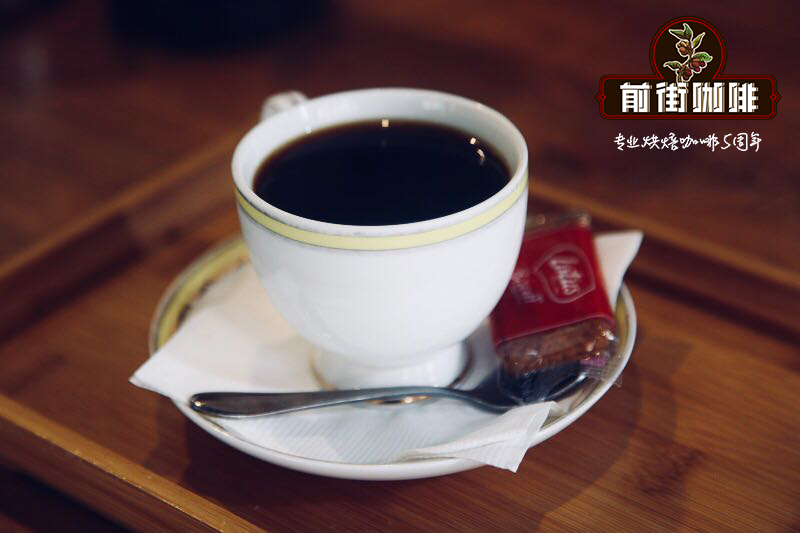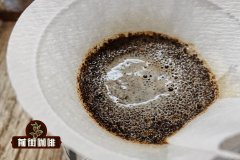Kenyanelli Coffee producing area introduces the washing treatment method of Mushika Cooperative Clonji Coffee Flavor
Introduction of Neri Coffee producing area
The best coffee beans in Kenya come from the central region. At present, western Kenya is also interested in growing coffee, such as Kisi Kisii, Trans-Enzoya Trans-Nzoia, Keiba Keiyo, Malagua Marakwetfm region.
Neri Nyeri is 1200-2300 m above sea level, east of Aberdare Mountains, near the high mountains of Mount Kenya. With high terrain and fertile soil, the harvest period of coffee has two seasons in a year, which are from October to December and from June to August. The varieties are SL-28, SL-34, Ruiru 11 and Batian. At the center of Neri Nyeri is the Kenyan volcano (extinct volcano). The red soil of the volcanic soil produces Kenya's best beans, so agriculture is the most important industry in the region, and coffee beans are one of its main cash crops. Compared with the big landlords, Niri is generally a small peasant cooperative.
Mushika Cooperative Society
The Mutheka Farmers' Cooperative Society, located in the Nyeri district of central Kenya, has grown coffee since the 1950s, and the Clonji washing Plant (Chorogi Factory) is one of seven nearby washing plants.
Neri is located in the mountains of the Kenyan Mountains and nearby Kirinyaga and is known as the best producing area in Kenya, famous for its complex and strong flavor.
Most of the farmers are small farmers, with an average of 250 coffee trees. Farmers form cooperatives and send cherries to washing plants for treatment.
After the coffee farmers harvest the cherries, they will first screen them, separate the immature fruits, and send them to the washing plant, which will be dealt with on the same day.
The peel machine is used to remove the peel and pulp, which is divided into three grades according to the density. 1 and 2 are better grades and will enter the fermentation process independently.
Dry fermentation was carried out under a sealed cover for 16-24 hours, cleaned after fermentation, and graded again according to density in the ditch. Finally, it will be soaked in clean water for 16-18 hours.
It takes 21 days to use the African viaduct in the sun. As Kenya's climate is quite humid during the harvest season, there will be occasional light rain, so the drying process after washing is very laborious, covering the coffee beans with a layer of plastic cloth. When it rains suddenly, cover the cloth, and when the rain stops, lift the cloth until the beans are completely dry, basically covering the beans at noon and at night.
Kenya AB Neri Clonge washing
Kenya AB Chorogi fully washed
■ producer: Kenya Kenya
■ beans: SL28, SL34
■ region: Central Province, central province of Neri Nyeri District;
■ Cooperative: Mushka Farmers' Cooperative Mutheka Farmer'sCo- op Society
■ treatment Plant: Chorogi Factory of Kun Ji Water washing Plant
■ producer: 1000 small farmers
■ altitude: 1800 m
■ treatment: full washing Fully Washed
■ level: AB
■ flavor: drupe, blackcurrant, cinnamon

Important Notice :
前街咖啡 FrontStreet Coffee has moved to new addredd:
FrontStreet Coffee Address: 315,Donghua East Road,GuangZhou
Tel:020 38364473
- Prev
How is the hanging-ear coffee made? What are the necessary factors for making hanging-ear coffee bags?
In fact, the production of hanging ears is a super-secret project. in order to make the best drinking ears, there must be not only coffee beans of excellent quality and high quality, but also the best grinding and packaging factories to complete the production of hanging ears. the complexity involved is far beyond the imagination of ordinary consumers. The high quality earbag we require must take into account the following factors: grinding earbag punching
- Next

Introduction and present situation of Hartmann Manor in Panama flavor characteristics of roses summer coffee beans in Hartmann Manor
Hartmann Manor Hartmann is the most famous coffee family in Panama, and FincaHartmann is also the first farm in Volcan to grow coffee. It attaches great importance to quality and actively tries new farming practices. Old Hartman R
Related
- Beginners will see the "Coffee pull flower" guide!
- What is the difference between ice blog purified milk and ordinary milk coffee?
- Why is the Philippines the largest producer of crops in Liberia?
- For coffee extraction, should the fine powder be retained?
- How does extracted espresso fill pressed powder? How much strength does it take to press the powder?
- How to make jasmine cold extract coffee? Is the jasmine + latte good?
- Will this little toy really make the coffee taste better? How does Lily Drip affect coffee extraction?
- Will the action of slapping the filter cup also affect coffee extraction?
- What's the difference between powder-to-water ratio and powder-to-liquid ratio?
- What is the Ethiopian local species? What does it have to do with Heirloom native species?

